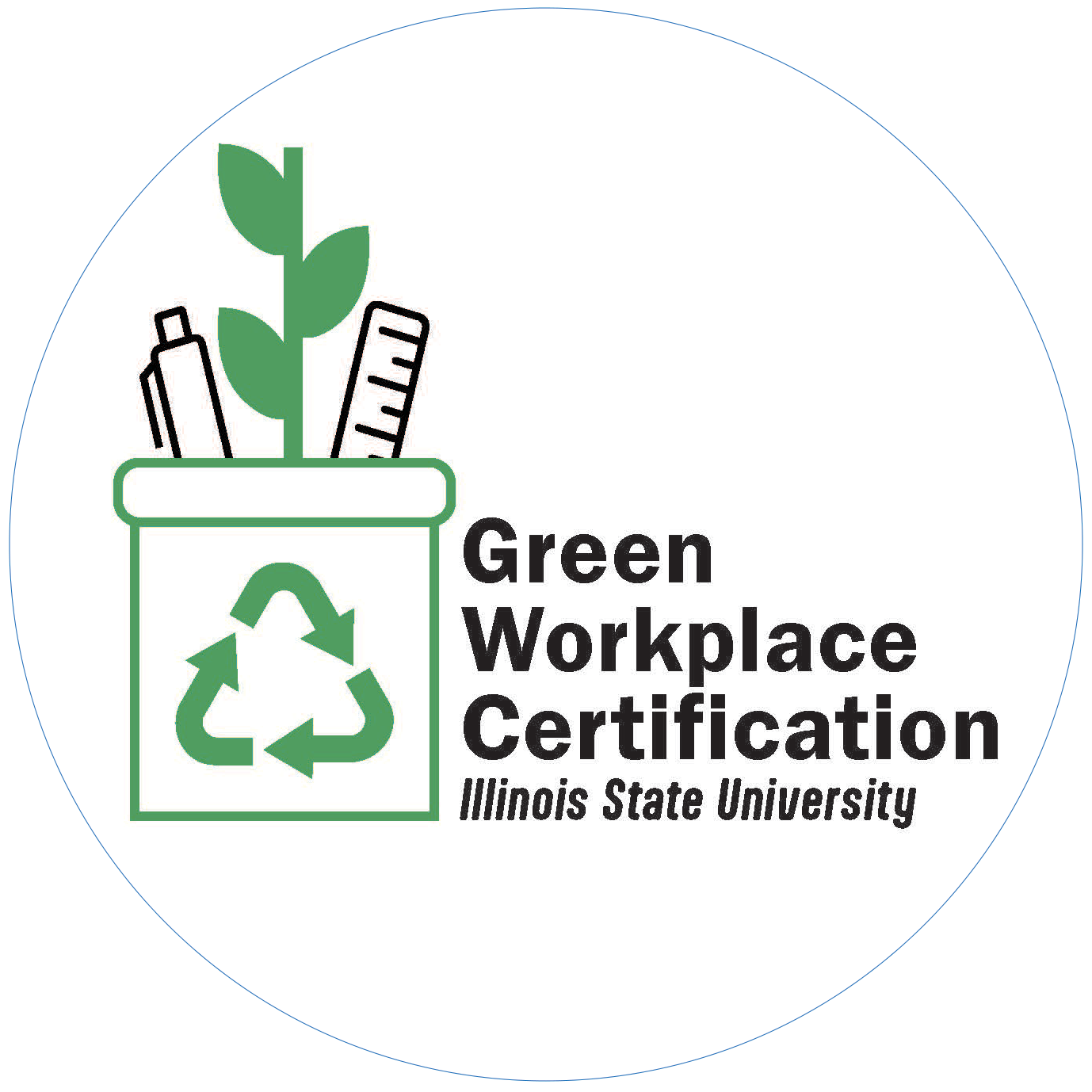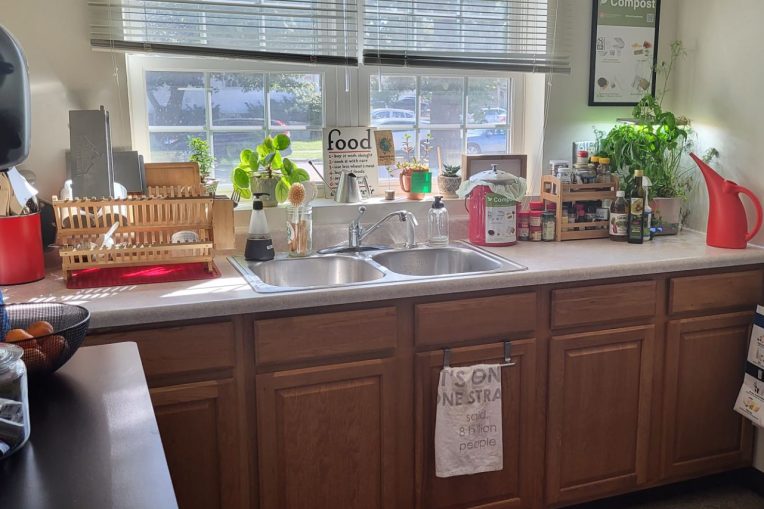
As Illinois State University faculty, staff, and students welcome in the New Year, the Office of Sustainability challenges members of the campus community to consider how they may integrate sustainability into their everyday lives.
Sustainability involves three pillars also known as the triple bottom line: people, planet, and profit. While often considered as a framework for businesses, it is also important for individuals to consider how this triple bottom line is present in their lives as well.
The first step to integrating sustainability into your life is to first consider what we choose to purchase and/or consume. Considering what we consume and discard is not only important for our environment (planet), but also for the people creating the products (people) and our local and global economies (profit).
To aid in this process, the Office of Sustainability has launched a new initiative that will help campus workplaces integrate sustainability practices into their offices or workspaces. The Green Workplace Certification challenges offices to self-assess their practices to learn where they are already acting sustainably and where there is room for growth. Participation in the program is meant to inspire campus offices to contribute in their own way to the goals within the Sustainability Strategic Plan.
Elisabeth Reed, director of the Office of Sustainability at Illinois State, has dreamt of this sort of program since she started as director in 2019. “We have so many offices and units already making the extra effort to be more sustainable,” Reed said. “This certification can give them the recognition they deserve, while encouraging others to join them.”
The Green Workplace Certification officially launched in October 2023 during the Campus Sustainability Showcase which took place during Campus Sustainability Month and Fair Trade Month.

The certification process involves a list of 50 “green” or sustainable tasks that are distributed among six different categories: required, recycling and waste management, energy and water conservation, purchasing, transportation, and Redbird and community engagement. At least 30 tasks (all from the Required category and at least one from each additional category) must be demonstrated as being completed for a workplace to be certified.
Workplaces begin the certification process by reviewing the tasks and consider their current sustainability practices and by selecting a representative or a small team of representatives from that will serve as their “green leader” or “green team.” These representatives complete an intent to apply form that gets sent to the Office of Sustainability.
Once submitted, the Office of Sustainability will review the form and meet with the workplace representatives to discuss next steps and provide resources and guidance on areas to consider for maintainable sustainability initiatives.
The workplace is then responsible for compiling documentation of their completed Green Workplace tasks. The documentation can take a variety of forms: a video, formal report, PowerPoint presentation, staff onboarding manual, etc. As such, workplaces are encouraged to consider how they may be able to use this documentation after they submit it for certification consideration.
“Documenting these efforts will not only lead to the Green Workplace Certification for that particular office, but it helps us better understand the efforts taking place all across our campus,” says Reed.
Once certified, workplaces will receive digital and physical certificate badges to display within their workspaces and online. They will also be recognized on the Office of Sustainability website and social media platforms. Additionally, workplaces have the opportunity to also serve as exemplars and resources for other workplaces across campus.
In conjunction with the launch of the Green Workplace Certification, the Office of Sustainability has updated its website to include several resource pages where anyone can explore the Sustainable Purchasing Guide full of eco-friendly products that can be “swapped” or replace less sustainable products. Additional resources include an Indoor Plant Guide, free downloadable signage and reminders, and information about Bike ISU. Future updates will include an updated Zero Waste Workplace Guide and new Energy Conservation Guides.
As we begin this new year, let’s collectively strive to make our campus community more sustainable by examining our workplace. Through participation in the Green Workplace Certification individual and collective actions have the potential to create a lasting impact, transforming Illinois State University into an exemplary green campus for generations to come.

